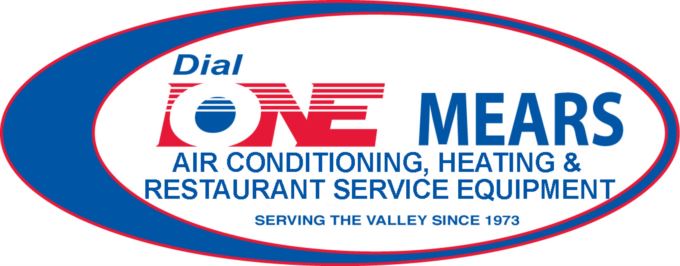
With adequate maintenance, your air conditioner can work for 15 years or longer. But even the best maintained air conditioner will need to be updated at some point.
When you’re starting to plan for air conditioning installation in Phoenix, we realize that the price tops your list of questions. The bright side is that getting a new air conditioner may be more reasonable than you are aware, due to rebates, our special offers and financing for qualified customers. You’ll also enjoy enhanced energy efficiency, which will typically pay off over its life span through cheaper electrical bills.
Here’s what to anticipate when you’re getting a new air conditioner.
The Best Time to Consider Replacing Your Air Conditioner
Knowing when to repair or replace your air conditioner might be difficult. Here’s what our professionals recommend.
Replace
- Your air conditioner is older than 10 years old. While some may last longer, the majority of air conditioners work for around 15 years with annual maintenance. We advise prepping for air conditioning replacement close to the 10-year age. Even if you install a new one when it’s only a decade old, the U.S. Department of Energy says this change could save you 20-40% on cooling costs.
- You’ve skipped annual maintenance for a long time. Similar to a car, your cooling system needs annual air conditioning maintenance. Overlooking this crucial service can result in lower efficiency, more persistent repairs and even a decreased life span.
- Your air conditioner needs frequent or expensive repairs. Needing air conditioning repair is usually the result of overlooking service But as your air conditioner gets older it’s more likely to suffer a catastrophic problem. When repairs are greater than half the cost of a new air conditioner, you should get a new one.
- Your home feels unpleasant. If your home feels too muggy or you’re having hot and cold spots in given spaces, your air conditioner may be having difficulty keeping up. This is a clue you need to replace it.
- Your cooling bills are costly. Your air conditioner gets less efficient as it becomes older. As a consequence, it could need to operate more frequently or longer to keep your home at your desired temperature. Newer air conditioners have the top energy-efficient technology to keep your residence comfy and utility expenses low.
- Your air conditioner runs on R-22 refrigerant. If your air conditioner was purchased before 2010, there’s a decent chance it uses Freon. Also called R-22, this refrigerant is no longer being produced as a result of its damaging effects on the environment. You can keep using your air conditioner, but if it were to develop a refrigerant leak, solving that would be extraordinarily expensive. This is due to the fact R-22 is only available in limited, recycled amounts.
Repair
- Your air conditioner is less than 10 years old. If your air conditioner is newer, it’s wisest to repair it.
- Repairs are infrequent or inexpensive. The wisest way to stop unexpected repairs is to have annual work scheduled. But when repairs are only needed intermittently or are reasonable, repair your air conditioner.
- Your air conditioner has a valid warranty. Most air conditioners are accompanied by a 5- to 10-year limited warranty that typically covers the compressor. Your exact warranty length is determined by your manufacturer, but it offers valuable protection in the event of a huge failure. If your air conditioner is protected by warranty, we recommend fixing it.
General Estimate of Air Conditioner Cost
Most homeowners spend around $4,631 on a new air conditioner, per national averages compiled by HomeGuide. Air conditioner cost averages often range from $3,350 to $5,912, but your precise cost {might|could|may] be lower or higher.
There are a few aspects that affect your total cost, including:
- The air conditioner model you install, as more energy-efficient ones are more expensive.
- The size your space needs.
- If you need to install new ductwork, which can happen if your ductwork is dated or inefficient.
We offer free estimates at Dial One Mears Air Conditioning & Heating Inc so you can be sure you’re getting a good deal. And with our wide range of air conditioners, there’s an energy-efficient model that works with just about any budget.
The Size of the AC System
Air conditioner size is crucial. A system that’s too small will have difficulty keeping your home cool. And one that’s too big may turn on and off too frequently, or short cycle. This action can increase your utility bill and wear your air conditioner out prematurely. This could also create temperature variability and make your house feel less comfortable.
At Dial One Mears Air Conditioning & Heating Inc, our technicians have many years of experience in accurately sizing and installing the right air conditioner for your residence. The size you need depends on how big your house is, along with a couple other factors. Some of the most common sizes include:
- 2 ton, which cools up to 1,000 square feet
- 3 ton, which cools up to 1,600 square feet
- 4 ton, which cools up to 1,900 square feet
- 5 ton, which cools more than 2,000 square feet
Other things that can impact air conditioner size are:
- The climate in Phoenix.
- Ductwork quality and age.
- How many windows your home has and the style, since big or picture windows might be less efficient.
- If your residence has more sun or shade.
- Insulation quality and concentration.
- How many people are in your household.
Seasonal Energy Efficiency Ratings
Your air conditioner’s efficiency is tied to its SEER, or Seasonal Energy Efficiency Rating. This ranking measures how efficiently it transforms electricity to create cooling. The higher the ranking, the more efficient the air conditioner is.
When you’re installing a new air conditioner, it’s important to be aware:
- Old air conditioners are rated around 8-9 SEER.
- Updated air conditioners start at 13 SEER. Ones installed in the southwest and southeast must be a minimum of 14 SEER due to U.S. Department of Energy requirements. As of 2017, these SEER rating requirements have saved homeowners trillions of dollars.
- ENERGY STAR®-certified air conditioners begin at 14.5 SEER.
- Higher SEER-rated air conditioners have additional features to help you save more. These features may involve variable-speed cooling. Instead of going at full blast constantly, these air conditioners can reduce blower speeds customized for your cooling requirements. This creates quieter and more energy-efficient air conditioning. While an air conditioner with a better SEER rating is typically higher priced, it may be eligible for additional rebates. And the energy savings over its lifetime might help it pay for itself.
Schedule Your Air Conditioning Installation with Dial One Mears Air Conditioning & Heating Inc Now
When you’re planning for air conditioning replacement, the company who puts it in is just as important as the model you go with. Dial One Mears Air Conditioning & Heating Inc is one of the top names for air conditioning installation in Phoenix. From helping you find the recommended solution for your house to going over financing options to professional installation, partnering with us is a breeze. Call us at 602-584-2884 to begin today!
